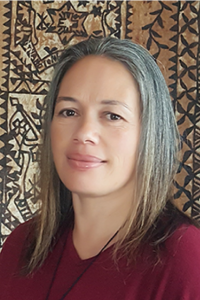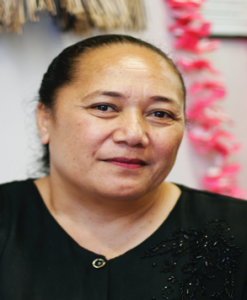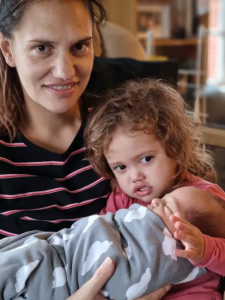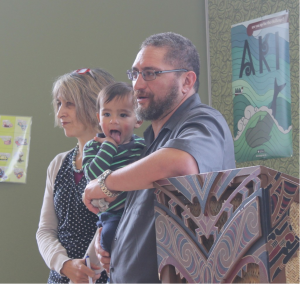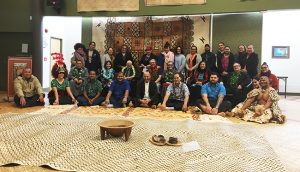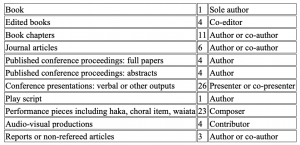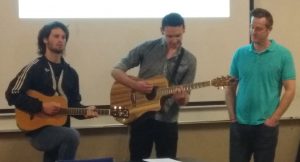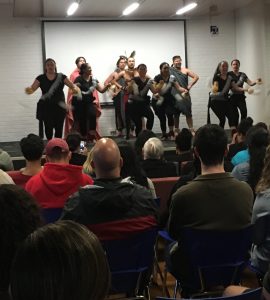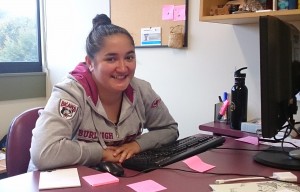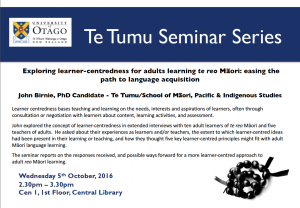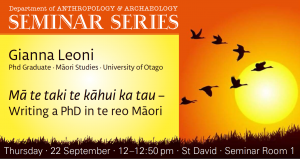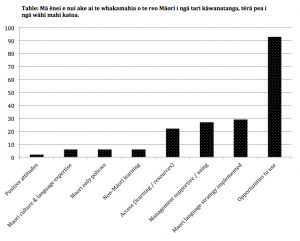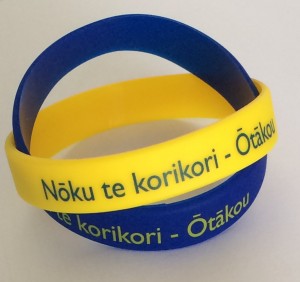Te Tumu’s UORG success
Three Te Tumu staff, Pai Taani, Dr Telesia Kalavite and Associate Professor Karyn Paringatai, have been awarded University of Otago Research Grants (UORGs) that will allow them to undertake or further research projects.
The title of Paia Taani’s research project is “I ahatia taku reo Māori? Tracking intergenerational transmission of te reo Māori within whānau”. She says, “my own experiences of learning te reo Māori as a second language and raising my own children with the language sparked my interest to investigate what happened to my language. This research project will therefore investigate the intergenerational transmission of te reo Māori within my whānau.”
Paia’s aim is to is to contribute to the existing research and literature about the use of te reo Māori within the context of whānau. Her research includes analysing whānau narratives to examine the historical intergenerational transmission of te reo Māori and will highlight critical moments within these narratives to explore the factors which affected language transmission within her whānau. The key themes emerging from these accounts will inform future language pathways for her whānau, and may also be used to generate recommendations to offer other whānau who may be seeking to reclaim their language.
The University of Otago Research Grant will help fund travel to the North Island to undertake hui and kōrero with participants, and will also fund a research assistant to undertake transcription work.
Paia expects that she will publish at least two journal articles from her research project, and she will one conference presentation. Another expected output of this research project is a hui with her participants where she will disseminate her findings and discuss ways to move forward with future research and support for whānau wanting to reclaim their language.
Telesia Kalavite’s research project explores “The implications of changing cultural practices in Tongan wedding celebrations in New Zealand”, and how these changes impact on Tongan people’s lives in New Zealand. This project has national and international significance in understanding the development of Tongan culture and identity in the diaspora as well as the myriad cultural, social, economic, political and environmental impacts that are encompassed in Tongan wedding celebrations. It will identify and map out traditional cultural practices in Tongan weddings over time and space. This will provide a context in which to explore contemporary factors affecting Tongan wedding practices in Aotearoa.
Telesia sees this as a pilot study for a larger project in the future on how Tongan celebrations impact on Tongan people’s socio-cultural and economic development in Aotearoa New Zealand. She says “I am a Tongan researcher, and it is very important that to get this kind of research righ; there should be people with clear expertise and connection to it, like myself.”
Karyn Paringatai is collaborating with Marcelle Wharerau, formerly a Te Tumu student and staff member who is now an academic based at the Tauranga campus of Te Pua Wānanga ki te Ao – Faculty of Māori and Indigenous Studies, University of Waikato. Their project is titled “Te Aho Tāngaengae: Māmā, Wahine, Māori, Academic”. Socio-economic stability through intergenerational mobility is a priority of whānau Māori; ensuring that future generations have full access to a range of resources that enhances intergenerational whānau wellbeing. Income, education and occupation feature predominantly in intergenerational mobility studies as primary indicators of social and economic status. However, this focus is too narrow and neglects the importance of also embedding cultural stability and responsibility. Whilst socio-economic stability and upward mobility is a priority of Māori, equally important is the intergenerational transmission of te reo Māori and tikanga Māori.
Colonisation has had profound negative effects on all aspects of te ao Māori, including maintaining intergenerational responsibilities for protecting and enhancing the mana of whānau, hapū and iwi. In this unique research, Karyn and Marcelle aim to show how the reestablishment of this intergenerational responsibility to contribute to the decolonisation of te ao Māori must be a deliberate priority and why it is of urgency to do so.
Te Aho Tāngaengae gives voice to the narratives of wāhine Māori academics who are first in family to complete higher education/university and the mechanisms they employ in the intergenerational transmission of cultural capital. Increasing the capacity, and linguistic and cultural capabilities of Māori across generations who can tangibly contribute to improving the social, economic and political wellbeing of te ao Māori must be a priority. This research is important to reveal new insights into the methods used that have the potential to accelerate transformative change within whānau for generations to come.
Te Tumu’s First Professor Emeritus
Poia Rewi (Ngāti Manawa, Tūhoe, Te Arawa, Ngāti Whare and Tūwharetoa) was appointed as a Senior Lecturer in Te Tumu, School of Māori, Pacific and Indigenous Studies at the University of Otago in 2003. Previously he had been a Māori Studies academic at the University of Waikato from 1992. In 2016 he was promoted to professor. He ended his service at Te Tumu in mid-2020 in July 2020 when he took up the role of Chief Executive/Tumu Whakarae of Te Mātāwai, a government organisation established under Te Ture mō Te Reo Māori 2016/The Māori Language Act 2016, to foster and support Māori language development for iwi.
Although the honour of professor emeritus is normally awarded to professors retiring from academia, the University’s Policy for the Award of the Title of Emeritus Professor allows the title to be made to a Professor who resigns, for example, to take up a distinguished public position. Poia’s illustrious academic career (discussed below) and his leadership within Te Tumu and the university induced Professor Michael Reilly and other Te Tumu colleagues to seek this honour for our recently departed Dean.
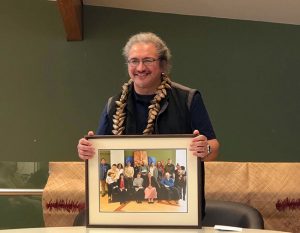
Professor Poia Rewi at his farewell at Te Tumu, 24 June 2020, with a photo featuring his Te Tumu colleagues.
Speaking to the Otago Bulletin Board on Poia’s departure in July last year, Professor Reilly described Poia as a “deeply humble, modest man who believes that it is for others to speak of the kumara’s sweetness.”
“His abiding passion is always first and last, te reo Māori. He advocates for its use by all New Zealanders. In his teaching and writing he always encourages his students and others to seek out and to utilise the rich diversity of language forms that the reo has inherited from the ancestors.”
“In Te Tumu Poia was generous with his time and showed hospitality to all. He became well known for volunteering to work in the kitchen, always concerned to ensure visitors, staff and students had plenty of food; a mark of the true leader, one who always thought of the well-being of others.”
Poia places much value on the importance of teaching the new generation, and work within the community. The growing success of his postgraduate students attests to his influence, and in 2012 he received the Otago University Students’ Association Supervisor of the Year Award. His knowledge of the reo and Māori performing arts resulted in him being appointed a judge at many regional Māori-language speaking competitions as well as being a judge at national, regional and tribal Māori performing arts competitions (adult/senior and high school levels).
Te Reo Māori has always been his passion. In 1997 he received a certificate as a translator and interpreter of te reo Māori from Te Taura Whiri i Te Reo Māori/The Māori Language Commission. This is an exceedingly hard qualification to attain and demonstrates his high level of proficiency in the Māori language. In 2005 Poia completed the first PhD solely in Te Reo Māori at the University of Otago. It was a study of whaikōrero or Māori oratory through the words of a group of some 30 respected elders, many of them highly regarded orators on the marae throughout the country.
Subsequently, he revised and translated the thesis into English for publication as Whaikōrero: The World of Māori Oratory, published by Auckland University Press in 2010. This book was the first major publication to study this major Māori art form. In 2011 it was awarded the New Zealand Society of Authors – E. H. McCormick Best First Book Award for Non-Fiction. Later, it became the basis for a 12 part Māori Television documentary, ‘Whaikōrero’, which won the Broadcasting-Māori medium category in Ngā Tohu Reo Māori 2014/the Māori Language Awards 2014.
As a researcher his dominant focus has been Te Reo Māori and the associated performing arts. As a teacher of the reo to second language learners he has always been interested in the revitalisation of the reo and this became the centre of his research in more recent years. In 2010 he was a lead investigator for two major grants from Ngā Pae o te Māramatanga, a national Centre of Excellence: ‘He Iho Reo, Developing a toolbox to support Māori Language Transmission and Maintenance’ ($226,439), and ‘Te Pae Tawhiti: “Te Kura Roa,”’ a jointly commissioned research project with Rāwinia Higgins of Victoria University of Wellington ($1,500,000). A number of reports and publications were generated from these grants including
- Day, D & Rewi, P., ‘Te Kura Roa wānanga wawata: Inter-department Specific- enablers/inhibitors’, 2013. Twelve individualised reports distributed to each of the 12 participating Government departments, approximately 667 pages.
- Higgins, R., Rewi, P., Olsen–Reeder, V. (eds.), The Value of the Māori Language: Te Hua O Te Reo Māori, Wellington: Huia Publishers, 2014,
- Day, D., Rewi, P. & Higgins, R. (eds.), The Journeys of Besieged Languages, Newcastle upon Tyne, UK: Cambridge Scholars Publishing, 2016.
Further to his academic pursuits, Poia has been a prolific writer of Māori narrative over the years manifesting in published works as haka compositions, waiata, Māori language plays, fiction and nonfiction. This has resulted in several texts published in the Pikihuia short stories series. Poia himself has also adjudicated the Pikihuia Māori writers’ awards for a number of years. His most recent writing accolade was acknowledged in 2020 for a te reo Māori text.
Poia has completed 86 outputs, as shown in the summary on the left.
Poia served as Dean of Te Tumu between 2015 and 2020. Another significant leadership role at Otago was as Associate Dean Māori, Division of Humanities, 2012-2014. He was also Deputy Director of Ngā Pae o te Māramatanga, a national Centre of Research Excellence, between 2018-2020.
His recognition as a leader in the Māori world was evidenced by his service as Acting Chief Executive of Te Taura Whiri i Te Reo Māori/The Māori Language Commission from 2014-2015. He was also a member of the Commission’s Board between 2012-2015. This outstanding service within, but also outside the university, helped pave the way to his new role at Te Mātāwai. Poia was elected in 2021 as a Fellow of the Royal Society of New Zealand Te Apārangi, “celebrated as one of the most active research specialists in Māori culture, language revitalisation, oral history and performing arts.” Yet, due to his modesty, even some of his Te Tumu colleagues had no idea of the extent of his scholarship.
Poia Rewi always said when he first came down to Otago 18 years ago he had only wanted to stay for a few years before heading back up to the North Island. We knew that he was only on loan to us, and it was an honour to have him for the time that that we did. E hoa, me kore ake koe hei ārahi i a mātou, arā, i ō hoa mahi o Te Tumu me te whare wānanga, i te ao Māori kei waho o te whare wānanga, me ngā tini tāngata e kimi ana, e whakaū ana, e whakapiki ana i te reo Māori.
[Thanks to Professor Michael Reilly and Dr Tangiwai Rewi for information for this post.]
Undergraduate research through te reo Māori
E kīa ana, he wāhi rangahau te whare wānanga, engari, kāore e waiho ana anake taua mahi mā ngā ahorangi, mā ngā pūkenga, mā ngā ākonga paerunga rānei. Uru ai hoki ngā ākonga paeraro ki roto i ēnei momo mahi. I tēnei hēmeta e toru ngā mahi rangahau i mahi ai ā mātou tauira reo Māori o te Whare Wānanga o Ōtākou.
I mahia ngātahitia te “Kāinga Waewae” e ngā tauira o ngā karaehe reo, arā, he rōpū nō ngā tāngata o MAOR112 Te Kākano, te MAOR212 Te Pihinga, me te MAOR312 Te Māhuri. I tēnei tau ka rangahaua ngā mahi a ngā tini tari o te Kete Aronui (Humanities). He momo whakaaturanga tā tēnā rōpū, tā tēnā rōpū mō te tari i rangahau ai rātou.
Ko tēnei te tau tuatahi i tū ai te pepa MAOR206/306 Ngā Pūkenga Tuhi, arā he kōhi hei whakapakari i ngā pūkenga, i ngā āheitanga e pā ana ki ngā momo tuhituhinga. Tokowhā ngā kaimahi o Te Tumu i whakaako i te pepa nei. Ko te tuhituhi ā-whare wānanga tētahi o ngā kaupapa, kia reri ai ngā tauira mehemea ka tahuri rātou ki te tuhi i ā rātou rangahau o ngā tohu paerunga i roto i te reo Māori. Mō tēnei pepa, ka hangaia e rātou he pānuitanga ānō nei kei tētahi hui rangahau rātou.
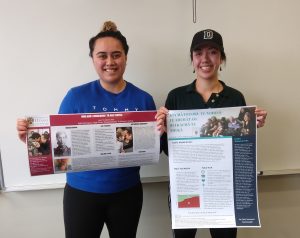
Ka riro i a Lyric Bird (taha mauī) te paraihe mō te pai o te whakapaipai o tāna pānuitanga e pā ana ki te tāmoko; ka whiwhi a Orini Herewini-Macdougall (taha matau) ki te paraihe mō te pai o te rangahau, mō te hunga “ahi matao”, arā, mō te hunga kāore e uru ana ki ngā mahi a ō rātou marae.
I tēnei wiki hoki ka tū te konohete a ngā tauira o MAOR308 Ngā Hākinakina a te Māori, ko Kelly Ann Tahitahi te kaiako, ā, ko Karyn Paringātai te kaiwhakahaere. Nā ngā tauira ngā waiata i rangahau, i tito, i whakarite; ko te “Reaka Z” te kaupapa, arā, ko te whakatipuranga e ako ana ki te whare wānanga ināianei. Tokomaha ngā tāngata i tae mai ki te mātakitaki, ki te whakarongo ki ngā waiata mō ngā āhuatanga o te ao hurihuri o tēnei wā.
Hard Copies Submitted
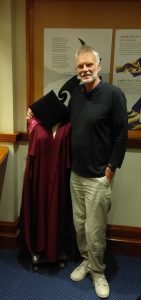 John Birnie submitted the “hard copies” of his PhD thesis today at the Graduate Research School.
John Birnie submitted the “hard copies” of his PhD thesis today at the Graduate Research School.
John has been a fixture at Te Tumu, graduating with his MIndS in 2012. Te reo Māori is one of John’s passions. He was a former high school teacher of te reo, and completed higher level reo classes at Te Tumu. His PhD, “Exploring learner-centredness for adults learning te reo Māori: easing the path to language acquisition” combines his interests in education and Māori-language learning.
John was supervised by Prof. Poia Rewi and Assoc Prof. Lachy Paterson, and by Dr Matiu Rātima in the early stages of his study. Submitting the hard bound copies is the final act in the PhD journey – with the exception of his graduation in May. Koia kei a koe, e Hone!
Kei te piki tonu a Gianna! Further success for Gianna!
I te tau nei, ka whakapōtaetia a Gianna Leoni mō tāna tohu kairangi. I tēnei tau hoki, kua mahi ia hei kairangahau, hei pūkenga mō Te Tumu, engari, kua riro i a ia he tūranga hou, hei kairangahau postdoc i raro i a Ngā Pae o te Māramatanga. Ko tāna kaupapa rangahau, ko “Te Ōhanga o te Pīpīwharauroa – Expressing our Economic Aspirations”.
This year, Gianna Leoni graduated with her PhD. Also this year she has been working as a researcher and lecturer for Te Tumu, but she has gained a new position, that of a Ngā Pae o te Māramatanga postdoctoral fellow. Her research project is “Te Ōhanga o te Pīpīwharauroa – Expressing our Economic Aspirations”.
“The aim of this research is to enhance the contemporary Māori language of economic development that reflects a kaupapa Māori way of doing business. It will include historical research of language use regarding economic activity and an examination of current language use in economic activities, [including case studies] with the main objective of reintroducing and/or developing appropriate language that expresses economic activity.
“This research will allow for kaupapa Māori values to be included in Māori businesses using vocabulary that has a whakaaro Māori, not just transliterations, and that encompasses the philosophy of trading in a Māori way. In order to truly align with kaupapa Māori values, and to get buy-in from the community, economic activity needs the opportunity to be expressed in te reo Māori in all areas (eg. Finance) that are relevant to the stakeholders.
“This research will also contribute to the revitalisation and maintenance of te reo Māori and is extremely significant as Māori reach the ‘post-settlement’ era of Treaty of Waitangi negotiations where there is an increasing amount of economic engagement by Māori organisations.
“This research project links to the theme Whai Rawa. It aims to contribute towards developing tools, theories and models that will add value and profitability to diverse Māori enterprises, businesses & communities. It will contribute to creating new understandings and approaches for effective governance of these entities.
“This project will also link to a previously established Whai Rawa project, The intergenerational reality for Māori Small and Medium sized Enterprises (SME): Building resilience of Māori SMEs for the future. The exploration of Māori language as an expression of economic aspiration establishes a critical bridge to understanding the intergenerational reality of Māori SMEs today, and in the future”
Ka pai, Gianna!
Te Tumu Seminar
Me pēhea rā e ngāwari ai te ako reo Māori mō ngā pakeke? How can we make it easier for adults to learn te reo Māori? Come and listen to John Birnie talk about his doctoral research.
He kauhau
Te Tumu’s newest PhD graduate will be presenting a seminar to the Department of Anthropology and Archaeology this Thursday, 12pm. Ko te kaupapa te tuhi i tāna tuhinga kairangi i roto i te reo Māori; on writing a thesis in Māori. Koia kei a koe, Gianna.
Professor Poia Rewi – Staff Research Profile
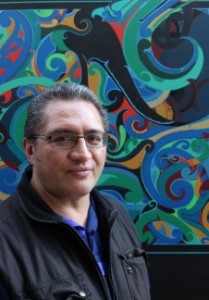 Ko Ahorangi Poia Rewi te Tumuaki o Te Tumu, engari, he whakahirahira hoki āna mahi rangahau kia ora ai te reo Māori. Ko ia hoki tētahi o ngā ētita o te pukapuka, The Value of the Māori Language: Te Hua o te Reo Māori (Huia Publishers).
Ko Ahorangi Poia Rewi te Tumuaki o Te Tumu, engari, he whakahirahira hoki āna mahi rangahau kia ora ai te reo Māori. Ko ia hoki tētahi o ngā ētita o te pukapuka, The Value of the Māori Language: Te Hua o te Reo Māori (Huia Publishers).
He uiui tēnei, he mea mahia mā runga īmēra.
Te Tumu: e te rangatira, tēnā koe. Ka harikoa te ngākau i tō whakaae kia uiuia mō tēnei putanga o tō tātou rangitaki (blog).
Nā, i tērā tau i whakatūria ai koe hei Tīni, arā hei tumuaki o Te Tumu, ā, i tēnei tau i whakaahorangitia koe. He mahi nunui pea ēnei tūranga hei hāpai i te reo Māori i roto i ngā akoranga o Te Tumu, i ngā mahi rangahau, i te whare wānanga hoki. Engari, ka whakapā tāku pātai tuatahi ki tō huarahi ki ēnei tūranga hou. I tō tamarikitanga me tō kuranga, he mea nui te reo Māori ki a koe? Ka aha koe ki te whare wānanga? Nā te aha koe i tahuri ai ki tō mahi hei pūkenga reo Māori? Ko wai ngā pūkenga e whai nei koe?
Poia Rewi: He roa pea te takahanga ki konei. Nā Hine-maringanui pea, nā ngā mana o ngā tīpuna pea, nā ngā pākeke mōhio pea ki te arataki, nā taku hapū ake hoki i runga i te mea, katoa rātou i whakawatea i a au i nga kawenga o te hapū i wātea ai au ki te whai i te ao mātauranga nei. Āpiti atu, ko ngā hoa mahi i roto i ngā whare wānanga e rua (otirā i ngā whare wānanga maha i ngā mahi rangahau) – nā ngā hoa mahi nei au i whakawātea, arā, ka pīkauhia e rātou ngā mahi akoako kia oti i a au ngā rangahau. Ko taku whakapae, nā te rangahau rawa i ū ai te piki tūranga ki uta.
Te Tumu: I tō tamarikitanga me tō kuranga, he mea nui te reo Māori ki a koe?
Poia Rewi: Ehara i te mea i noho motuhake te reo: i aro nui au ki ngā mea Māori (noho marae, mahi whānau, haere ki ngā huihui)
Te Tumu: Ka aha koe ki te whare wānanga?
Poia Rewi: Ko aku aronga nui i ēnei tau, 1) ko te whakapakari hoa mahi, 2), ko te whakapakari i ngā kaupapa akoako a Te Tumu, c) ko te whakapūmau me te whakatairanga i ngā mātauranga Māori, Pasifika , iwi taketake ki te Whare Wānanga o Otākou.
Te Tumu: Nā te aha koe i tahuri ai ki tō mahi hei pūkenga reo Māori?
Poia Rewi: i tīmata noa iho au hei kaiāwhina mā Te Haumihiata Mason i Waikato, koia taku whakamarumaru whakaako reo tuatahi, hua noa, ka hapū tētahi kaiako reo, ka riro māku e kawe, nā, kua pūkenga reo Māori.
Te Tumu: Ko wai ngā pūkenga e whai nei koe?
Poia Rewi: Kua whakahuatia e au a Te Haumihiata, arā atu ano a Te Wharehuia, a Hirini, a Tīmoti. Arā anō ngā pūkenga ā-iwi nei, i aku hapū, i aku iwi nui tonu.
Te Tumu: Kua tino mārama nei, he nui rawa atu tō aroha ki te reo Māori, ā, kei te pīrangi koe kia kōrerotia whānuitia te reo i roto i te hapori. He aha ōu wawata mō te reo?
Poia Rewi: kia nui ake te korerotia, kia tokomaha ake te hunga korero; mātua, koinā.
Te Tumu: Me aha kia tutuki ai?
Poia Rewi: Kia tangata whenua anō te reo i te whenua nei, kātahi ka tutuki.
Te Tumu: he huhua ngā momo kura onāianei e whakaako ana i te reo Māori, engari kei ngā whare wānanga ngā tini mahi rangahau. Whakamāramatia tō koutou hōtaka rangahau ko āu ākonga paerunga. He aha ngā painga e tūmanakohia ana? He aha ērā atu rangahau kāore anō kia meatia, engari kei te matea tonu?
Poia Rewi: ko Te Kura Roa te Kawenga Rangahau matua – he kaupapa nā māua ko Ahorangi Rawinia Higgins o Te Kawa A Māui. E mātua aro ana ki te hua o te reo Māori (ahakoa hapori, ahakoa tari kāwanatanga), Ko Te Kura Roa – Waiaro te wāhi ki Otākou, anā, ko tāna he titiro ki te waiaro o ngā tari kāwanatanga ki te reo Māori i Aotearoa. I Tīmata i 2011. Ko ngā kairangahau kua whai waahi ki tenei rangahau o Otākou nei, ko Dr Delyn Day, ko Gianna Leoni, ko Norma Bartlett, ko Merirangitiria Rewi, ko Julia Coates, ko Suzanne Duncan, ko Awhi Wakefield, ko Kelly-Ann Tahitahi, ko Tawini WHite, ko Raphael Richter-Gravier, ko Jacob Myhre, ko Victoria Campbell, ko Te Hau White, ko Marcelle Wharerau.
Ko ngā mātua kitenga o te rangahau rā, kia kura unua nei te whakarauora reo, arā, ko tā tētahi tētahi riu he titiro ki te whakapūmau i te oranga o te reo, ko tā tētahi, he he whai kia tipu te reo.
Te Tumu: He aha ngā painga e tūmanakohia ana?
Poia Rewi: kia whakahingāia mai ngā tari kāwanatanga, me te motu whānui o Aotearoa ka pai ake te waiaro ki te reo Māori.
Te Tumu: He aha ērā atu rangahau kāore anō kia meatia, engari kei te matea tonu?)
Poia Rewi: Kua nui pea nga rangahau, ko te tīni i te waiaro te mate nui. Hei ahakoa, ka whakamanatia te Pire Reo Māori ākuanei, tera pea koinā te rongoā ināhoki, ko tētahi o ngā tohutohu matua o te Pire, kia riro mā te iwi āna kaupapa mō te reo e kōkiri, ka mutu, ka mātua tophu Te Taura Whiri i te Reo Māori hei whai i te aro mai o ngā Tari Kāwanatanga ki te reo Māori. Kāore anō ngā tari kāwanatanga kia āta aro turukihia ā-hōmiromiro tonu nei. Koinā pea te mātua niho o te Pire Reo Māori ā taka iho ki te anamata.
Koia ēnei ngā mea e tautoko ana i te whakamahia o te reo Māori i ngā tari kāwanatanga:
Te Tumu: Kia ora, e hoa.
Nā, ā te Tāite, 14 Hōngongoi a Poia tū ai ki te kōrero mō ana mahi rangahau. Kō tāna Kauhau Ahorangi (Inaugural Professorial Lecture) tēnei. Hei te 5:30pm, Burns 2, kei te Whare Wānanga o Otākou. Haramai nei ki te whakarongo ki a ia.
ZePA research behind Māori language initiative at university
“Nōku te korikori” is a new initiative to help promote and normalise te reo Māori on campus, based on the ZePA model.
Developed by researchers Professor Poia Rewi, Dean of Te Tumu, and Professor Rāwinia Higgins (former Te Tumu staff member and now Head of School of Māori Studies at Victoria University), ZePA stands for Zero->Passive->Active, in which individuals might “right-shift” to a more active use of te reo Māori. The principles behind this model are explored in the book, The Value of the Māori Language: Ngā Hua o te Reo Māori.
“Nōku te korikori”, spear-headed by Tangiwai Rewi, the coordinator of Te Tumu’s Māori Studies programme, encourages learners and speakers of te reo Māori to don distinctive wristbands so that other learners and speakers can easily identify people who are receptive to a kōrero i roto i te reo rangatira. For full details check out this Otago Bulletin article.
Te Tumu postgraduate success
Featuring Malia Lameta & Te Ao Marama Tawhara. Six Te Tumu Masters-level students are graduating next week, with either Master of Arts, or Master of Indigenous Studies, showcasing our research strengths in the fields of Māori Studies, Pacific Island Studies, and Indigenous Development. Two are featured in today’s blog post, with more profiles forthcoming.
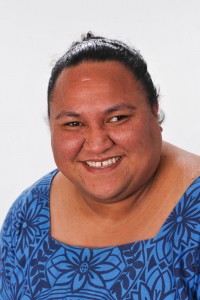 Malia Ellen Mamele Lameta (Samoan)
Malia Ellen Mamele Lameta (Samoan)
MA (Pacific Island Studies) supervised by Professor Michael Reilly and Dr Michelle Schaaf.
“I Am The Apple Of My Brother’s Eye” : An investigation into the evolving roles of Samoan women with particular reference to religion and gender relations.
[Click here to access the thesis]
Abstract: What does it mean to be a Samoan woman? The following thesis addresses this question by exploring the lived experiences of Samoan women with particular reference to religion and gender relations. Adopting an inter-disciplinary approach, it sheds light on the tenacity of socio-cultural and political factors that influence women’s roles and status. In particular, this research explores how Samoan women navigate the differing and often contradicting worlds of culture, Christianity, family, education, politics and gender. Information for this research was obtained through a series of interviews and literature analysis of primary and secondary sources. It has been the aim of this thesis to prove, not only to myself, but to those with a background and understanding similar to my own, that we, as women, are not inferior within Samoan culture. The participants’ words have been integrated throughout this thesis from Chapter One so as to emphasise and give strength to the voice of Samoan women. This thesis is centred on the inspiration and aspiration of these women and as a result, their testimonies have been brought alongside the literature as opposed to being supplementary. Women’s roles as sisters, wives and daughters are explored and the question is posed whether their cultural importance and status has been diminished by the influence of Christianity. From the evolution of women’s roles, to the changing meanings of the feagaiga, from the arrival of Christianity to the present day, women within Samoan society play a role that is imperative to the proper function of families, villages, districts and nation. The arrival of Christianity has not stripped us of our traditional importance but has increased and expanded our roles. We, Samoan women, are not oppressed, we are not suppressed; we have a voice, a place and dreams.
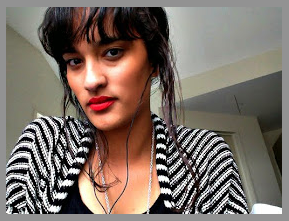 Te Ao Mārama Anna Maria Tawhara (Ngāi Tūhoe/German)
Te Ao Mārama Anna Maria Tawhara (Ngāi Tūhoe/German)
MA (Māori Studies) supervised by Dr Matiu Rātima & Associate Professor Poia Rewi.
Kia Māori te reo Māori? An investigation of adult learner attitudes towards the impact of English on te reo Māori
Abstract: This study sought to answer the following questions: What impact does the English language have on te reo Māori (the Māori language)? What attitudes do adult language learners have towards the impact of English on te reo? And what implications do these attitudes have for the revitalisation of te reo Māori? Engaging in in-depth semi-structured interviews with eight former University of Otago Māori language students from Te Tumu School of Māori, Pacific and Indigenous studies[1] (Te Tumu) forms a necessary part of this research project. Following Braun and Clarke (2008), the data gathered from the interviews was examined using Thematic Data Analysis.
The fundamental aim of this thesis is to explore and describe adult learner attitudes towards the impact of English on te reo Māori, so as to gain insight into how active language learners within Te Tumu perceive the influence of the English language. The thesis has two key foci, the first is parts of language, such as transliteration, code switching, pronunciation, grammar and idiom. The second is the impact of English within the context of teaching and learning.
On the one hand, this study shows that the participants view the impact of English as a form of contamination that is having a negative effect on Māori cultural concepts because there is less use of authentic Māori words and phrases, which in turn dilutes and minimises the representation and understanding of a Māori epistemological world view. On the other hand, some participants identified specific times when English language usage could be helpful to their developing proficiency in te reo Māori. The findings yield that there are certain exceptions such as the use of transliterations and code switching as being a necessary tool for scaffolding learning of te reo Māori particularly during the early stages of learning. The use of transliteration as a form of humour was also seen as acceptable. However, the main concern among the cohort was the maintenance of the authentic use of te reo Māori, more specifically, Māori lexicon, grammar, pronunciation, and idiom. Furthermore, the participants felt strongly about certain aspects of teaching and learning within Te Tumu that privilege Pākehā teaching methods[2] such as the grammar translation method and a lack of attention to tikanga Māori (Māori culture) and Māori centred pedagogies. The findings from this study show definitively that the participants feel that the language is in a state of contamination, on the other hand they are also concerned that there are times where transliteration and code switching can be necessary, even useful.
[1] See http://www.otago.ac.nz/tetumu/ for further information about the University of Otago department of Māori, Pacific and Indigenous studies.
[2] By Pākehā methods of teaching I am referring to the pedagogical teaching practices that favour the use of the English language.

